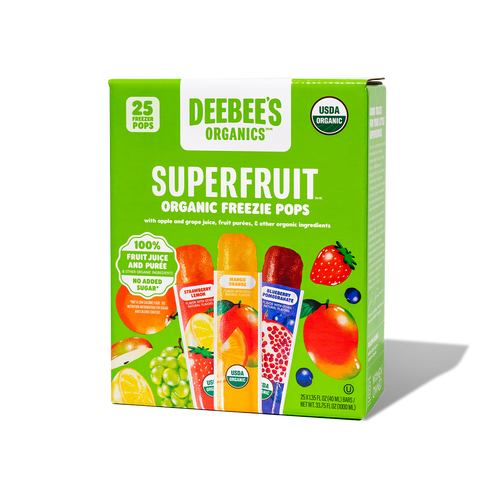Tired of tossing out spoiled fruit?
Fruits are packed with essential vitamins, antioxidants, and juicy flavor, but they need proper care to stay fresh. From storage techniques to preservation tips, this ultimate guide covers everything you need to know to make the most common winter fruits last all season long!
How to Enjoy Apples Until Spring
Rich in fiber, apples are a versatile fruit that support our immunity and digestion. If you’re hoping to keep apples on hand all season long, here’s how.
- How to ripen apples: Apples bought in winter are typically fairly ripe! If you prefer to buy unripe apples in bulk, place the quantity of fruit you’d like ripened in a paper bag with a banana, closing it loosely until ripe (approximately 1-3 days.)
- How to store apples: Store ripe apples in the refrigerator in a perforated bag to prevent mold, increase freshness, and keep the fruit’s crispy texture. Apples usually last up to two weeks in the refrigerator.
- How to preserve apples: We love to make applesauce with batches of fruit and can them for the entire season. If you have a dehydrator or an airfryer with a dehydrate setting, dehydrate your apples for a winter snack that will last up to four months.
How to Keep Pears On Hand All Winter
Pears are filled with vitamins that promote healthy hearts and digestive systems. Here’s how to experience these benefits this winter:
- How to ripen pears: The most common way to ripen pears completely is by leaving them at room temperature for a few days. If they are very slow to ripen, try placing them in a bowl with already ripe fruit to speed up the process.
- How to store pears: Once ripe, pears can be stored in the refrigerator for up to five days. Pears have a short fridge life, so be sure to preserve them instead if you’re looking to have them last longer.
- How to preserve pears: Did you know that you can freeze chopped pears in a ziploc bag for up to one month? If you’re looking to preserve pears all winter, poach them whole and can them in a jar with some syrup!
How to Enjoy Citrus Fruit All Season
Known for their vitamin C content, citrus fruits like oranges, grapefruits,, and pomelos boost immunity and skin health. Looking to experience these benefits all season? Here’s how.
- How to ripen citrus fruit: Citrus fruits are ready to eat when bought and don’t require ripening, so don’t hesitate to dig in right after you get home!
- How to store citrus fruit: If you’re looking to store your fruit for a little bit longer, store them in a cool, dry place (like the pantry or a cool kitchen shelf) for a week. You can also refrigerate them in the crisper drawer for up to three weeks.
- How to preserve citrus fruit: We love freezing slices of citrus fruit for up to four months and taking them out to add to water or tea for an immunity boost. They can also be canned into a delicious homemade marmalade!
How to Keep Cranberries Around Until Spring
Cranberries are filled with antioxidants, and have antibacterial properties that even prevent infection. If you want to keep this festive fruit around throughout the winter, keep reading!
- How to ripen cranberries: Similar to common citrus fruits like oranges and grapefruit, cranberries are ripe when bought, so enjoy their full tartness!
- How to store cranberries: Cranberries typically last 4-7 days at room temperature. If you’re looking to store them for a little longer, refrigerate them instead in a dry container for up to four weeks to maintain their crispness.
- How to preserve cranberries: Similar to apples, cranberries can be dehydrated for a delicious snack that’ll last for up to 6 months! If you’re craving something juicer, make and can a festive cranberry sauce for a treat that’ll last until springtime.





